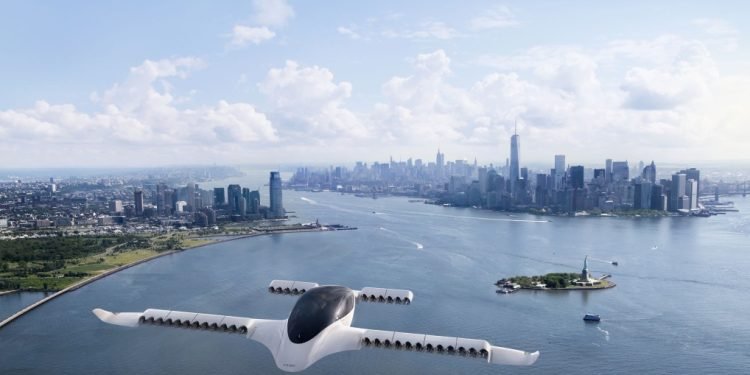The future of air cargo delivery could be taking a greener turn. Deutsche Bahn (DB), the German national railway company, and Lilium, a leading developer of electric vertical takeoff and landing (eVTOL) aircraft, have announced a groundbreaking partnership. This collaboration aims to establish a network of electric air cargo hubs within Germany, potentially revolutionizing short-haul air cargo transportation and reducing its environmental impact.
The Need for Sustainable Cargo Solutions:
The air cargo industry is a significant contributor to greenhouse gas emissions. Traditional aircraft rely on fossil fuels and contribute to climate change. This partnership between DB and Lilium seeks to address this challenge by exploring the use of electric-powered eVTOL aircraft for short-haul cargo deliveries.
Deutsche Bahn: A Logistics Powerhouse:
Deutsche Bahn boasts a vast and established logistics network across Germany. Their expertise in ground transportation makes them a strong partner for integrating electric air cargo hubs into their existing infrastructure. This collaboration leverages DB’s strengths in route planning, cargo handling, and logistics management.
Lilium: Pioneering Electric Flight:
Lilium is a pioneer in developing eVTOL aircraft, designed for electric vertical takeoff and landing. These futuristic vehicles hold the potential to revolutionize short-haul transportation, offering a quieter and more sustainable alternative to traditional helicopters or airplanes.
A Network of Electric Cargo Hubs:
The partnership envisions establishing a network of electric air cargo hubs strategically located across Germany. These hubs would seamlessly connect with DB’s existing ground transportation network, enabling efficient first-and-last mile delivery solutions for air cargo.
Benefits Beyond Sustainability:
This collaboration offers several advantages:
- Reduced Emissions: Electric-powered eVTOL aircraft have the potential to significantly reduce carbon emissions associated with short-haul air cargo transportation.
- Enhanced Efficiency: The integration with DB’s existing network could potentially lead to faster delivery times for time-sensitive cargo.
- Decongestion of Urban Areas: eVTOL aircraft offer opportunities to bypass traffic congestion in urban areas, further improving delivery efficiency.
Challenges and Considerations:
Several hurdles need to be addressed before widespread adoption:
- eVTOL Technology Maturity: eVTOL technology is still under development, and ensuring the range, payload capacity, and safety of these electric aircraft is crucial.
- Regulatory Framework: Regulations around eVTOL operations and airspace usage need to be established and adapted to accommodate this new technology.
- Infrastructure Development: Building and integrating a network of electric air cargo hubs requires significant infrastructure investment.
A Glimpse into the Future of Air Cargo:
The partnership between Deutsche Bahn and Lilium represents a significant step towards a more sustainable future for air cargo delivery. This collaboration demonstrates a commitment to innovation and reducing the environmental impact of the transportation sector. If successful, this project could pave the way for a network of electric air cargo hubs, transforming short-haul cargo transportation and setting a new standard for sustainability in the air cargo industry.
Looking Ahead:
The coming years will be crucial for this project. Successful development and testing of eVTOL technology, establishing clear regulations, and building the necessary infrastructure will be key factors in determining the feasibility and long-term impact of this innovative approach to air cargo delivery. One thing is certain: the partnership between Deutsche Bahn and Lilium offers a glimpse into a future where electric skies power a more sustainable and efficient air cargo network.























